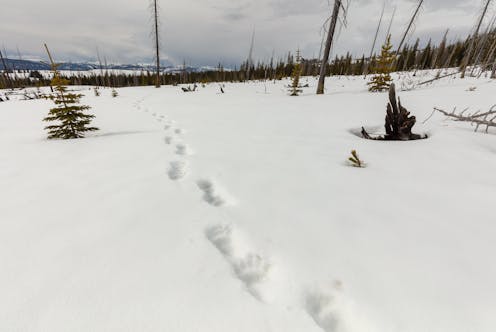Linking protected areas from Yellowstone to the Yukon shows the value of conserving large landscapes, not just isolated parks and preserves
- Written by Charles C. Chester, Lecturer in Environmental Studies, Brandeis University
 Fresh grizzly bear tracks in Yellowstone National Park.Jacob W. Frank, NPS/Flickr
Fresh grizzly bear tracks in Yellowstone National Park.Jacob W. Frank, NPS/FlickrAs human development spreads ever farther around the world, very few large ecosystems remain relatively intact and uninterrupted by highways, cities or other human-constructed obstacles. One of the largest exceptions is the Yellowstone to Yukon region, or Y2Y, which...

